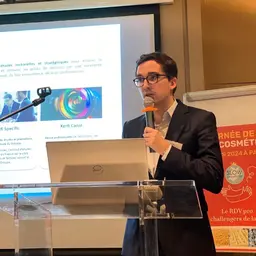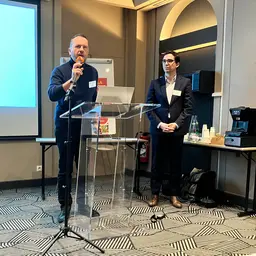
In a recent paper that draw my attention, “A greater priority should be given to collaboration and sharing,” Pascal Picq, a French renowned paleoanthropologist, comes with some interesting concepts. He affirms, and he is probably right, that 80% of the innovations would be due to the ability of persons to collaborate. As an example, he quotes populations of monkeys who, for their survival, have put in place a division of labour based only on everyone’s competencies and on the needs of the community …
What leads a macaque to give his neighbour a bit of his food is the idea that, otherwise, the next time, maybe he would himself be denied food.
Why this parallel? A nice question, indeed!
Only because for the last months, in fact, I could say, for the last years, I have several times tried to set off experiences or steps to pooling on some questions of our industry, always with the same target: produce innovation. However, almost every time, I had to face the same problem: the fear to sharing, based on several reasons, but always leading to the same result: opposition to change. Pascal Picq, on his side, points out the fact, “All along the evolution, the processes of natural selection have favoured the groups that shared and collaborated.”
There are many areas in which collaboration would make the move forward faster, farther and better. The regulation and the compliance with it is one of them (look at my previous paper on regulation ). Sharing pieces of information is another one. I understand that a kind of “Wikipedia Ingredients," that I suggested some years ago, is a great utopia. However, are these utopias not another means to move …














